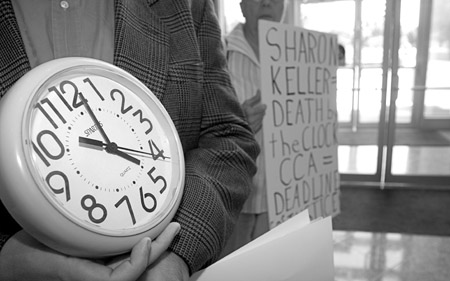Joan Cheever who once worked at the Texas Court of Criminal Appeals as a briefing attorney, has an op-ed in the Houston Chronicle that concludes by asking, “But I still would like to know: Did Keller close the office at 5 p.m. because she’s dumb or just mean?”
More from Cheever’s op-ed:
As quick as a hiccup, Texas Court of Criminal Appeals Presiding Judge Sharon Keller denied Richard’s lawyers the 20 minutes they needed to print the darn thing out and get it to the court —11 copies of Richard’s 108-page petition and get it to the court. E-mails aren’t allowed. And I guess a frantic, pleading phone call doesn’t count, either.
Keller didn’t even pick up the phone and call the other judges on the court to get their opinions. At least two of them have said they were hanging around the court that evening, just waiting for Richard’s application. The judges were ready to vote. The U.S. Supremes couldn’t step in, procedurally, unless and until the Texas judges called it first.
All the Texas judges had to have been available by phone for this vote. At least that’s what they are supposed to do at the Texas Court of Criminal Appeals, most especially in the hours before an execution. At least that’s what they did in 1983, when I worked there as a briefing attorney. In the weeks and days and, most especially, on the day and in the hours leading up to a midnight execution, everyone knew about it — the lawyers, the court clerk, the clerical staff, even the nightly cleaning crew.
Cheever is a former briefing attorney for the Texas Court of Criminal Appeals and the author of Back From the Dead: One woman’s search for the men who walked off America’s death row (John Wiley & Sons 2006).











